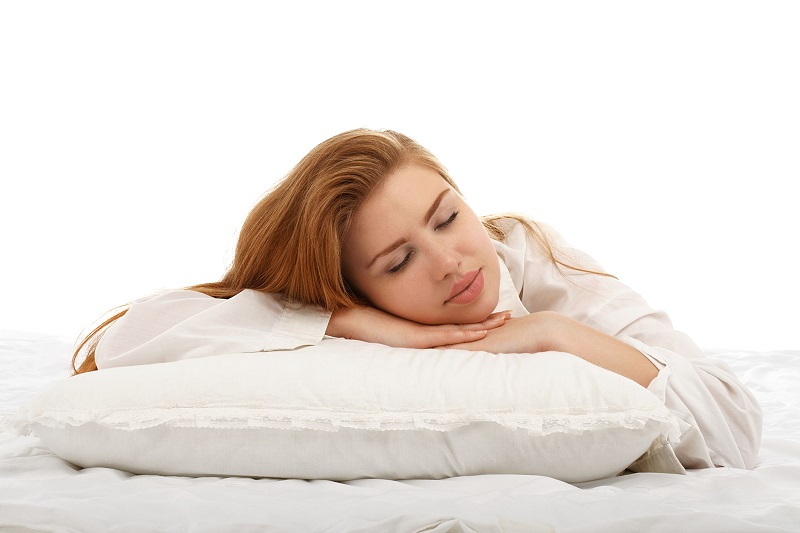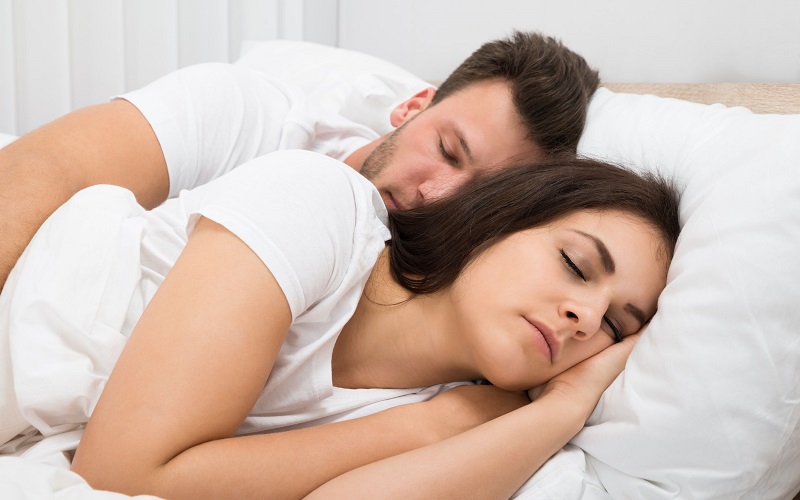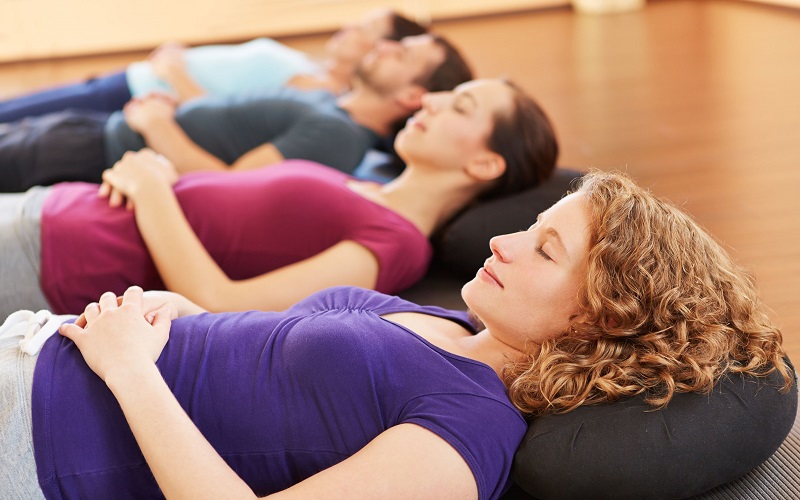Healthy sleep is so important to our wellbeing – it is the time when we rest and rejuvenate, let go of daily stress and prepare ourselves for the next day ahead.
But we all struggle with sleep from time to time – whether it’s from stress, worry, discomfort, aches & pains, or snoring partners! It’s common to experience trouble sleeping, which is why our Balance team has joined forces to help you get the sleep your body needs.
The Downfalls of Poor Sleep
Staring at the ceiling at 2:30 am, unable to sleep, is usually low on our list of favourite pastimes. Insomnia is the difficulty of falling or staying asleep. Affecting anyone at any age, insomnia and/or waking unrefreshed can be some people’s reality.
Research shows that adults who get fewer than seven hours of sleep (whether for just one night or over the course of days, weeks, or months) experience daytime consequences such as irritability, fatigue, and poor memory. Sleep deprivation not only has detrimental effects on your work life, relationships and wellbeing but increases the risk of ongoing health problems.
If you or someone you know is having trouble sleeping – it’s important to get some support.
Get the mechanics right
… with our Myotherapist, Glenn Austen
We generally spend a third of our lives in bed – and there are four important factors that can influence our capacity to be physically comfortable:
1. our pillow
2. our mattress
3. what state our body is in
4. who we share the bed with
It is vital to understand that if your sleeping environment doesn’t support your body for the entire duration of sleep, we end up waking up throughout the night.
One of the main reasons we require sleep is for our body to heal itself, replacing cells and rejuvenation. This can only happen when we enter into deep delta brainwave activity, and it usually requires 3-4 hours for us to transition into this state. So if we are having a restless night continually waking up, we deny ourselves of the intended purpose of sleep.
But this doesn’t need to be the case. Glenn can help you to create a physically sound sleeping environment to support your specific sleep style and body type, rather than allowing your body to adapt poorly to an unsupportive structure. This is a complex process that can be corrected easily with the right advice. Glenn can prescribe and provide supportive pillows, and recommend the ideal mattress type to support your individual sleep requirements.
Restoration of your body is what Glenn specialises in so if you are in any pain or discomfort it’s necessary to get this fixed with Myotherapy that focuses on the cause of physical pain and dysfunction. When your body is relaxed and free of tension, your quality of sleep will improve.
The other main reason we have sleep trouble is due to our busy minds. Often, our minds start racing when we go to bed, thinking of all the things we need to do, or we may wake up throughout the night and can’t get back to sleep due to the same reason. As your mind is racing, your brainwave activity is in its most active state which is essentially the furthest away from where it needs to be to get the quality sleep that you need.
In addition to the physical aspects of a good night’s sleep, Glenn can also provide exercises to help you achieve a deep state of sleep and establish healthy habits so you don’t need to rely on anything outside of yourself.
Support Sleep from the Inside
… with our Naturopath Dr Juanita Jolly, and our Acupuncturist, Dr Clancy Street
There are natural medicines and supplements that can help promote a restful, nurturing night’s sleep, without leaving you feeling groggy.
• Passion Flower – herbal passionflower extracts are made from the aerial parts, such as leaves and flowers. These extracts are rich in flavonoids and have been traditionally used in Western herbal medicine for insomnia and nervous conditions.
• Jamaica Dogwood – traditionally used in South America and the West Indies for nerve pain, anxiety and nervous tension. This herb helps you relax while reducing any pain that may be disturbing your sleep.
• Zizyphus – with a long history of use for insomnia in traditional Chinese medicine; this herb is said to “nourish the heart and calm the spirit”. Zizyphus is widely used when insomnia is due to nervous tension or anxiety.
• Lavender – helps improve both the quality and duration of sleep, without causing unwanted sedative effects. It is a particularly beneficial herb for those kept awake by worrying thoughts.
• Magnesium – is valuable for countless actions in the body, including supporting healthy nervous system function so you are less affected by stress; or relaxing sore, tense muscles that may be disturbing your sleep. Magnesium levels may be low in those suffering from insomnia, so addressing this insufficiency can help improve sleep. Your Practitioner can recommend high quality, highly absorbable forms of magnesium to help you re-establish a healthy sleep cycle.
Our Naturopaths and Chinese Medicine Practitioners can help to find the right herbs and supplements for you to get a good night’s sleep.
Relax your mind
… with our Shiatsu therapist (and resident Yogi), Marian Jarvis
Yoga is often a practice recommended for people with sleeping issues but also a practice many people won’t do because “I’m not flexible enough”. Sound familiar? Well, if bending yourself into pretzel-like shapes is not for you, then perhaps you’d prefer doing Yoga Nidra.
Often referred to as ‘yogic sleep’ it’s an immensely powerful relaxation technique that you do lying down. 45 minutes is said to be equivalent to 3 hours sleep, but 15-20 minutes is enough to help the body physiologically relax.
Some of the benefits include:
• Anyone can do it anywhere either seated or lying down
• It can help you fall asleep if you do it as part of your bed time routine
• It’s completely guided so unlike meditation there is no intense thinking or wandering of the mind
• It calms the nervous system leading to less stress and better health
• Yoga Nidra gives you a space to explore what you need and work on releasing long-held emotions
Yoga Nidra is Marian’s go-to when she is anxious, tired, wound up, nervous, or when she just needs to find some peace and space after spending time with a lot of people. Marian often recommends this short 20 minute yoga Nidra to her Shiatsu clients but there are many more to choose from on Youtube.
Nurture your Yin
… with our Acupuncturists Dr Juanita Jolly & Dr Clancy Street
From a Chinese medicine perspective, sleep is vital to replenish Yin. Yin is responsible for the nourishment of our whole body, recuperation of the nervous system, cell growth, and repair. If you’re waking feeling unrefreshed from poor sleep, your Yin and Yang are out of whack, so Chinese medicine and acupuncture may be able to help.
Sleep is considered a ‘Yin’ activity. When entering into a state of Yin (such as sleep) it is not only important for rest, rejuvenation and relaxation but is also seen as entering into a world of feeling and intuition. The opposite of Yin is ‘Yang’, which represents daytime and is the domain of physical activity and the analytical mind.
In the modern world, there is an enormous emphasis on the development of the rational intellectual mind and the pressure to maintain ceaseless stressful activity. It is rare to find darkness away from artificial lighting, computers and smartphones and it is difficult for most people not to carry their daytime mental activity into the world of sleep. This can create an imbalance between Yin and Yang, with Yang generally being increased and Yin generally being reduced with the daytime world being extended into the night contributing to the development of insomnia.
Foods and substances such as coffee, tea, sugar, spicy foods, alcohol, and excessive exercise at night should also be decreased as these things are said to invigorate Yang and deplete Yin which is not a great idea if your body is preparing for night (Yin) time.
The pain, discomfort or emotional distress associated with a long-term illness can also deplete Yin in the body and further contribute to the development of insomnia. Traditional Chinese medicine and acupuncture would, therefore, focus on addressing or supporting the body’s healing process as well as nourishing Yin, calming the mind, and promoting relaxation.
Acupuncture and Chinese medicine are used to calm and support the nervous system, promote relaxation, calm Yang, and nourish Yin. Our Chinese medicine practitioners are here to help improve your overall quality of sleep with acupuncture, herbs, and gentle lifestyle changes.
A Few Simple Lifestyle Changes to Enhance Sleep
… from the whole Balance Team
Reducing or avoiding lifestyle factors that can negatively impact sleep can be the key to getting the rest you need.
• Reduce or eliminate stimulants, i.e. caffeine and sugar
• Go to bed at the same time each night
• Create a dark sleeping environment
• Invest in a comfortable and supportive mattress and pillow
• Limit alcohol consumption
• Practice relaxation exercises or read a book in bed
• Reduce screen time an hour before bed, i.e. phones, computers or TV. In the evening, utilise an app that inverts the screen lighting to create black backgrounds with white text
• Find a meditation app that helps you relax
• Get regular exercise
If you need to get a better night’s sleep, make an appointment with one of our knowledgeable practitioners today – we are all here to help you achieve sweet dreams!







